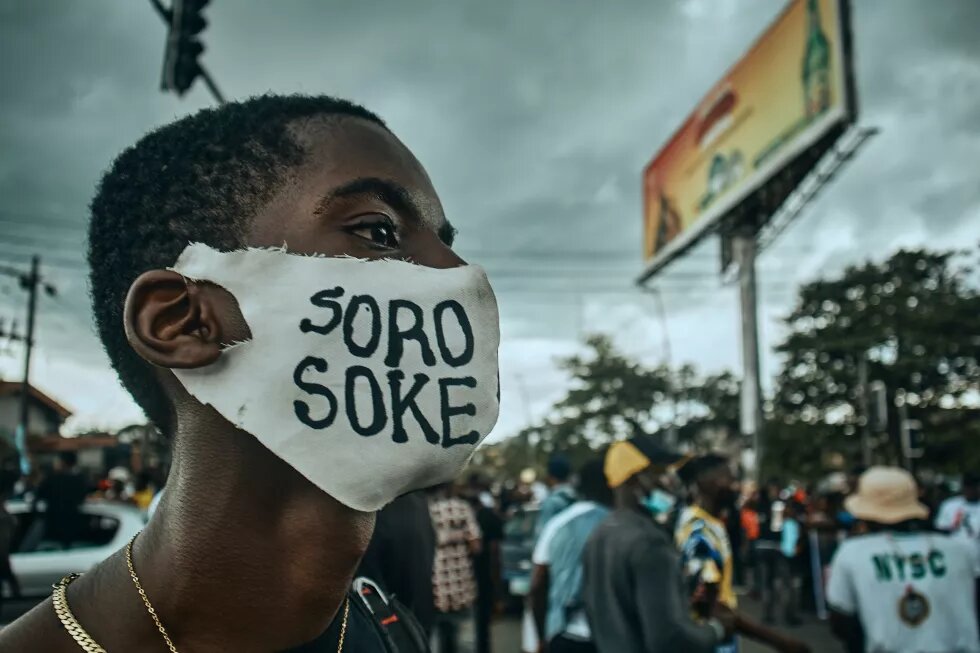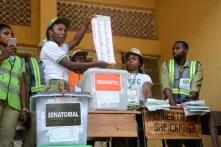
Ahead of the upcoming general elections, there has been a notable rise in the registration of new voters across Nigeria. The surge was so significant that the courts ordered an extension of the registration period by a full month, from the end of June until the end of July. According to the Independent National Electoral Commission (INEC), 12 298 944 new voters were registered in the course of voter registration, bringing the total number of eligible voters to 96 299 428. In contrast with the voter apathy that has marked recent elections in the country, this marks a 14.64% increase from the 84 000 484 registered in 2019.
However, the numbers are not the only noteworthy thing. The age of these new voters might better illuminate what to expect in the general polls come February 2023. About 8.7 million (70.73%) of the newly registered are between 18 and 34 years old, with another 2.4 million (19.50%) between the age of 35 and 49. The increase in female registrants (6 224 866; 50.61%) was slightly higher than males (6 074 078; 49.39%).
The age demographic of this wave of new registrants closely correlates with that of the #EndSARS generation. In 2020, the #EndSARS movement against the brutality of Nigeria’s special anti-robbery squad (SARS) police unit evolved organically into nationwide protests that shook the political establishment to the core. The protests came to a tragic halt after the government’s fatal attack on unarmed protesters on 20 October 2020, but the movement behind it did not end. It has become clear that young Nigerians have “seen the light” and were simply awaiting an opportune time for a #EndSARSReloaded to again insist on the country of their dreams.
Not only have they registered to vote in their numbers, but they are also now disrupting the political landscape of the country. Taking to social media and to the streets, they urged Nigerians to register and collect their voter cards and are positioning themselves as a decisive force that will shape the 2023 general elections. They can already account for the unprecedented rise of the Labour Party’s presidential candidate, Peter Obi, who appears to be their candidate of choice for a protest vote against both the governing All Progressives Congress and the main opposition, the Peoples Democratic Party.
In the past months, they have rallied for their candidate, filling the streets of major cities across Nigeria – including Lagos, Abuja, Calabar, Jos and Makurdi – in crowds reminiscent of the #EndSARS movement. In a country abased by vote-buying, they are making a point of paying their own way to attend the marches. And they are again reiterating their insistence on good governance, making it clear to Peter Obi himself that their vote is for a better Nigeria, and that they are merely making him a vehicle for achieving it.
Despite all the excitement, however, Nigeria may be only rehashing an old script that is unlikely to lead to good governance. In 2015, there was a similar frenzy to elect Muhammadu Buhari as president. Swayed by popular sentiments, millions of voters endorsed him as the best candidate, but without carefully examining his governance plans and asking hard questions. In fact, General Buhari avoided election debates and would not commit to any specific plans of action for security, the economy or even respecting citizens’ right to participate in governance. Yet, in their frenzied quest for a better future, the electorate cheered him on.
A few years down the line, it became clear that President Buhari did not live up to their hopes. Insecurity is at an all-time high, Nigeria’s energy crisis has deepened, the economy is near collapse and the civic space is badly constricted. Apart from the civil-war era, the country has never been this divided. A great number of Nigerians have already voted with their feet, moving to seek greener pastures in other climes as economic and security exiles.
The rise in voter registration for the 2023 general elections election has a strong resemblance to what happened in 2019. The 2015 elections had 69 288 117 registered voters. In 2019, this increased by 14 712 367 to 84 000 484, a jump of 21.23%. Interestingly, the increase in registered voters in 2019 was not reflected at the polls – apathy stole the shine of President Buhari’s re-election. Across the country, there was a terribly low voter turnout of only 34.75%. In 2015, 43.65% of registered voters had voted.
So, what can the #EndSARS generation still do differently in the 2023 polls?
First, they made the right move in registering to vote. However, this needs to be followed up with a campaign to pick up their voter cards. The INEC has already noted the abysmally low collection rate.
The next critical step would be to learn from the mistakes of past elections and follow an issue-based approach in deciding which candidate to vote for. They need to gather and analyse crucial data about the country and determine what policies would move it in the right direction. The various communities – such as student groups or market women associations – need to organise around issues that are important to them in the elections and beyond. Based on this, all candidates should be asked critical questions about their proposed policies and strategies for pulling Nigeria away from the edge and making a prosperous country. They need to dig into the records of all of the candidates, their skills, competencies and character. Candidates’ pasts will often tell us what to expect from them in the future.
The new crop of young voters also needs to pay greater attention to state and local government elections. Demanding accountability there may be more within their reach and the decisions of those public officials often bear greater consequences for their development than those at the federal level.
Finally, the #EndSARS generation needs to realise that elections are only the beginning of the process: the real work of democracy – or, to be clear, participatory governance – really begins after elections. It must be a process of accountability and negotiating priorities over the full term of office, not simply giving a free pass to the preferred candidate at election time.
Having said all this, the most critical demographic in the 2023 elections remains Nigeria’s bulging youth population, who proved during the #EndSARS protests that they were ready to build the Nigeria of their dreams. I wish them well and trust them to steer us to a better future. The labour of our heroes present shall never be in vain.
The views expressed are those of the author and do not reflect the views or position of the Heinrich Boell Foundation.


